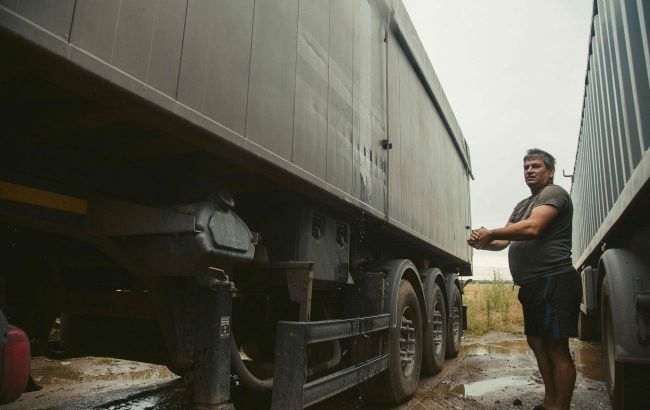Lithuania proposes banning transit of Russian and Belarusian agricultural products
 Photo: Lithuania proposes to introduce a ban on the transit of agricultural products from Russia and Belarus (Getty Images)
Photo: Lithuania proposes to introduce a ban on the transit of agricultural products from Russia and Belarus (Getty Images)
In Lithuania, there is a temporary proposal to ban the import and transit of agricultural products and feeds of Russian and Belarusian origin, according to the Delfi Lithuania Telegram channel.
The proposal to amend the law on agriculture, food, and rural development has been put forward by the Chairman of the Economic Committee of the Seimas Kazys Starkevičius.
If the proposal is approved, the Seimas will introduce a ban on the "import, entry, and transit of agricultural products and feeds originating from the Russian Federation or the Republic of Belarus through the territory of the Republic of Lithuania."
This proposal is planned to be implemented from April 15 of this year until July 1, 2025. Before it takes effect, it is suggested to approve lists of agricultural products and feeds prohibited for import, entry, or transit through the territory of Lithuania.
Additionally, one of the demands of Lithuanian farmers who protested in January was the cessation of transit for Russian grain, as mentioned in the report.
The European Commission has no intention of negotiating with Russia to extend the transit of Russian gas to European countries through Ukraine.
"According to our RePowerUE plan, we aim to eliminate Russian gas by 2027," stated Kadri Simson, the European Commissioner for Energy.
She mentioned that the European Commission is actively working to "provide countries with alternative supply routes and alternative suppliers, while at the same time supporting Ukraine for its better integration into the EU energy market," and "we have successfully passed another heating season, so now is the time to start preparing for the next winter."
Prime Minister Denys Shmyhal has also announced a Plan B following the cessation of Russian gas transit. According to him, Ukraine does not plan to negotiate with the aggressor country regarding the extension or signing of an agreement.
Simultaneously, he reported on multiple negotiations at European forums, with European leaders based on the European Commission, and emphasized, "If European countries decide to unite or if any of our European partners takes on the transit of their gas, we are ready to provide such a service, as we have always approached European partners responsibly."
In addition, Shmyhal stated, "We unquestionably have a Plan B; the system will not be lost. It is necessary for our state, and we have other opportunities to use it, including for transit."

